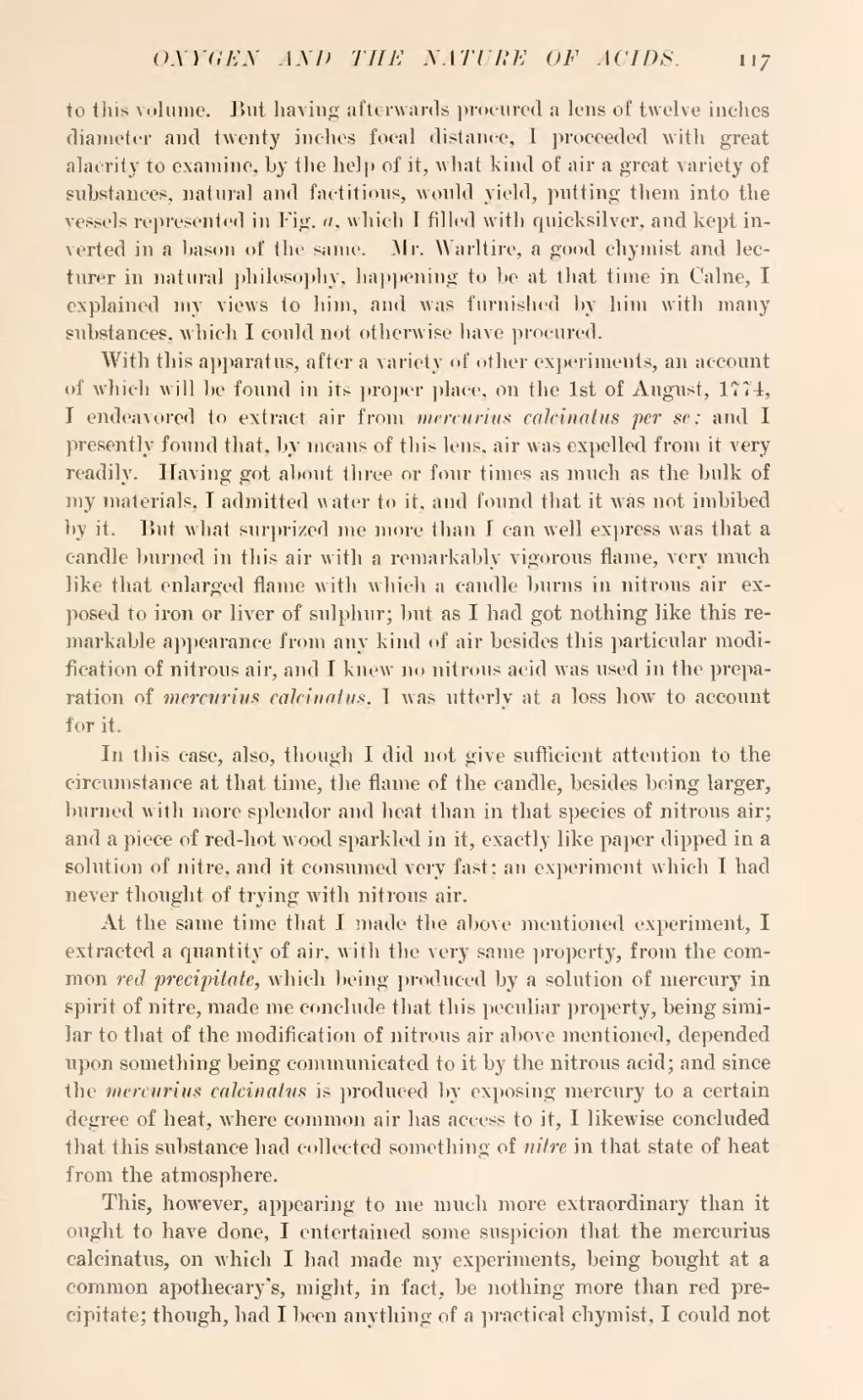to this volume. But having afterwards procured a lens of twelve inches diameter and twenty inches focal distance, I proceeded with great alacrity to examine, by the help of it, what kind of air a great variety of substances, natural and factitious, would yield, putting them into the vessels represented in Fig. a, which I filled with quicksilver, and kept inverted in a bason of the same. Mr. Warltire, a good chymist and lecturer in natural philosophy, happening to be at that time in Calne, I explained my views to him. and was furnished by him with many substances, which I could not otherwise have procured.
With this apparatus, after a variety of other experiments, an account of which will be found in its proper place, on the 1st of August, 1774, I endeavored to extract air from mercurius calcinatus per se; and I presently found that, by means of this lens, air was expelled from it very readily. Having got about three or four times as much as the bulk of my materials, I admitted water to it, and found that it was not imbibed by it. But what surprized me more than I can well express was that a candle burned in this air with a remarkably vigorous flame, very much like that enlarged flame with which a candle burns in nitrous air exposed to iron or liver of sulphur; but as I had got nothing like this remarkable appearance from any kind of air besides this particular modification of nitrous air, and I knew no nitrous acid was used in the preparation of mercurius calcinatus, I was utterly at a loss how to account for it.
In this case, also, though I did not give sufficient attention to the circumstance at that time, the flame of the candle, besides being larger, burned with more splendor and heat than in that species of nitrous air; and a piece of red-hot wood sparkled in it, exactly like paper dipped in a solution of nitre, and it consumed very fast; an experiment which I had never thought of trying with nitrous air.
At the same time that I made the above mentioned experiment, I extracted a quantity of air, with the very same property, from the common red precipitate, which being produced by a solution of mercury in spirit of nitre, made me conclude that this peculiar property, being similar to that of the modification of nitrous air above mentioned, depended upon something being communicated to it by the nitrous acid; and since the mercurius calcinatus is produced by exposing mercury to a certain degree of heat, where common air has access to it, I likewise concluded that this substance had collected something of nitre in that state of heat from the atmosphere.
This, however, appearing to me much more extraordinary than it ought to have done, I entertained some suspicion that the mercurius calcinatus, on which I had made my experiments, being bought at a common apothecary's, might, in fact, be nothing more than red precipitate; though, had I been anything of a practical chymist, I could not
